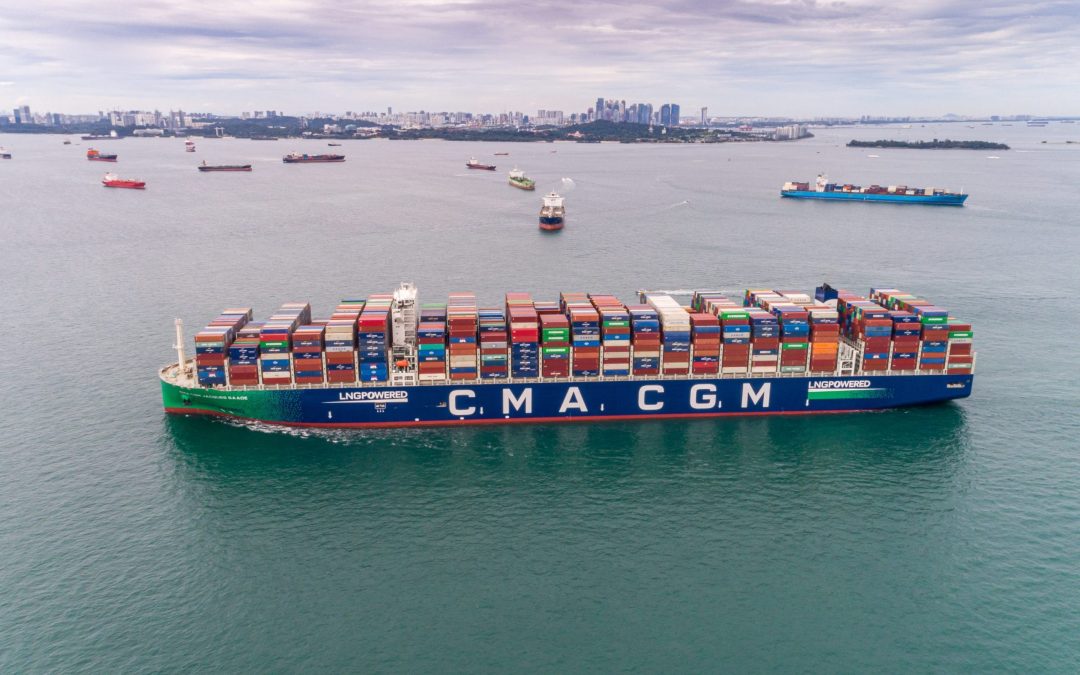Shell and CMA CGM have signed a multi-year agreement on the supply of LNG fuel for CMA CGM ships in the Port of Singapore.
The LNG bunkering will be performed by FueLNG, a joint venture between a unit of Shell in Singapore and Keppel Offshore & Marine (Keppel O&M), utilizing Singapore’s first LNG bunkering vessel, FueLNG Bellina, beginning in the second half of 2023. A second 18,000 cbm capacity LNG bunker vessel is planned to come into service in 2023. Ship-to-ship bunkering allows for simultaneous operation (SIMOPS) while in port.
CMA CGM, which started investing in LNG fuel since 2017, is in the process of constructing the biggest fleet of dual-fuel LNG containerships in shipping. The company recently ordered 10 additional LNG-powered ships, bringing its orderbook to 69 vessels, the majority of which are planned for LNG operation (CMA CGM also ordered six methanol-fueled ships, it’s first).
Shell said this latest supply agreement corresponds to CMA CGM’s 13,000 TEU ships.
“CMA CGM continues to see the potential in LNG as a marine fuel, so it is a hugely positive step to be extending our supply commitments in this area,” said Tahir Faruqui, General Manager, Head of Downstream LNG at Shell. “By using LNG as a marine fuel, the industry immediately places itself on a decarbonising pathway, starting today. LNG is a fuel in transition and offers a credible pathway to liquefied biomethane and the hydrogen-based fuel liquefied e-methane; both having the potential of being net zero.”
Additionaly, the two companies have also signed a Memorandum of Understanding (MoU) to advancemen of low-carbon marine fuels, such as liquid biofuels, bio/e-methane (to LNG), bio/e-methanol, for new and existing vessels; technology related to LNG and hydrogen blending, methane slip abatement, and fuel cells; voluntary and mandated trading of carbon credits; and joint advocacy for net zero-emissions policies.
Melissa Williams, Vice President Marine, Sectors & Decarbonisation at Shell, said: “Collaboration and partnership are critical in paving the way, which will include a mosaic of lower-carbon fuels, technology sharing and partnership projects to realise a net zero future in shipping. Thus, I am excited about our agreement with CMA CGM as it allows both businesses to bring their respective scale and size to drive impactful change in the industry – helping our customers to overcome their challenges and meet their ambitious decarbonisation goals in the process.”
Source: gCaptain






